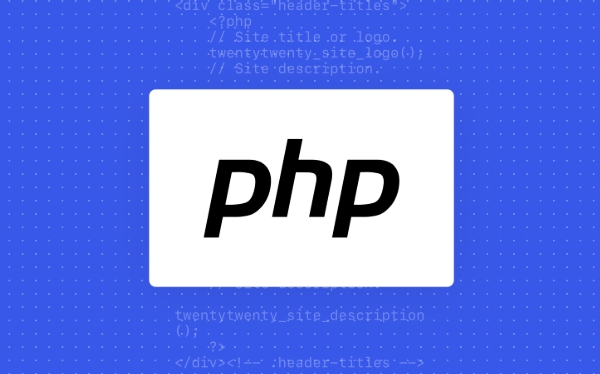Passing Variables by Reference vs. By Value in Functions
Jul 26, 2025 am 09:49 AMPass by value means a copy of the data is passed, so changes inside the function do not affect the original variable, as seen in C with primitives or Python with immutable types. 2. Pass by reference means the function receives a direct reference to the original, so modifications inside the function affect the original, supported in C with & or naturally in Python with mutable objects like lists. 3. Different languages handle this differently: C uses only pass by value (except with pointers), Java passes object references by value, and JavaScript uses pass by sharing for objects. 4. Use pass by value to avoid side effects and ensure data safety, especially with small data. 5. Use pass by reference to modify originals or improve performance with large objects, such as using const & in C for efficiency without unintended changes. Understanding these rules ensures predictable and efficient code behavior.

When you pass variables to functions in programming, the way those variables are handled—by value or by reference—can significantly affect how your code behaves. Understanding the difference is key to writing predictable and efficient code.

What Does "Pass by Value" Mean?
When a variable is passed by value, the function receives a copy of the original data. Any changes made inside the function do not affect the original variable.
This is common in languages like C, Java (for primitives), and Python (with immutable types like integers, strings).

Example (C):
void increment(int x) {
x = x 1;
}
int main() {
int num = 5;
increment(num);
// num is still 5
}Here, num stays 5 because only a copy was passed.

? Key point: The function works on a local copy. Original stays untouched.
What Does "Pass by Reference" Mean?
When passing by reference, the function gets a direct reference (or alias) to the original variable. Changes inside the function do affect the original.
This is supported in languages like C (using &), C# (with ref), and PHP (using &), and happens naturally in Python when passing mutable objects like lists or dictionaries.
Example (C ):
void increment(int &x) {
x = x 1;
}
int main() {
int num = 5;
increment(num);
// num is now 6
}Now, num becomes 6 because we modified the original via a reference.
How Different Languages Handle This
Not all languages work the same way. Here's a quick comparison:
C: Only pass by value. To simulate pass-by-reference, use pointers.
C : Supports both. Use
&for references.Java: Pass by value for primitives; objects are passed by value of the reference (sometimes called "pass-by-value-of-reference").
Python: Assignments inside functions create local copies, but if you modify a mutable object (like a list), changes persist.
def modify_list(lst): lst.append(4) # Modifies the original list my_list = [1, 2, 3] modify_list(my_list) # my_list is now [1, 2, 3, 4]JavaScript: All primitive types are passed by value; objects (including arrays) are passed by sharing (similar to Java).
-
Use pass by value when:
- You want to avoid side effects.
- Working with small data (like numbers).
- Ensuring the original data stays safe.
-
Use pass by reference when:
- You need to modify the original variable.
- Passing large objects (avoid copying for performance).
- Returning multiple values (via reference parameters).
- Pass by value: Safe, isolated, but may copy data.
- Pass by reference: Efficient and allows modification, but can introduce side effects.
- Language matters—know how your language handles parameter passing.
When to Use Each Approach
? Tip: In C , always consider using
const &for large objects you don’t intend to modify—this avoids copying without risking changes.
Summary
Basically, if you're unsure whether your function changed the original, check whether you're dealing with a copy or a reference. It’s not magic—just rules the language follows.
The above is the detailed content of Passing Variables by Reference vs. By Value in Functions. For more information, please follow other related articles on the PHP Chinese website!

Hot AI Tools

Undress AI Tool
Undress images for free

Undresser.AI Undress
AI-powered app for creating realistic nude photos

AI Clothes Remover
Online AI tool for removing clothes from photos.

Clothoff.io
AI clothes remover

Video Face Swap
Swap faces in any video effortlessly with our completely free AI face swap tool!

Hot Article

Hot Tools

Notepad++7.3.1
Easy-to-use and free code editor

SublimeText3 Chinese version
Chinese version, very easy to use

Zend Studio 13.0.1
Powerful PHP integrated development environment

Dreamweaver CS6
Visual web development tools

SublimeText3 Mac version
God-level code editing software (SublimeText3)

Hot Topics
 The Lifecycle of a PHP Variable: From Allocation to Garbage Collection
Jul 24, 2025 pm 10:49 PM
The Lifecycle of a PHP Variable: From Allocation to Garbage Collection
Jul 24, 2025 pm 10:49 PM
APHPvariable'slifecyclebeginswithmemoryallocationviazvalcreation,whichstoresthevalue,type,referencecount,andreferenceflag.2.Whenvariablesareassignedorshared,PHPusesreferencecountingandcopy-on-writetooptimizememoryusage,onlyduplicatingdatawhennecessar
 The Case Against the `global` Keyword: Strategies for Cleaner Code
Jul 25, 2025 am 11:36 AM
The Case Against the `global` Keyword: Strategies for Cleaner Code
Jul 25, 2025 am 11:36 AM
Avoidusingtheglobalkeywordunnecessarilyasitleadstocodethatishardertotest,debug,andmaintain;instead,usefunctionparametersandreturnvaluestopassdataexplicitly.2.Replaceglobalvariableswithpurefunctionsthatdependonlyontheirinputsandproduceoutputswithoutsi
 Passing Variables by Reference vs. By Value in Functions
Jul 26, 2025 am 09:49 AM
Passing Variables by Reference vs. By Value in Functions
Jul 26, 2025 am 09:49 AM
Passbyvaluemeansacopyofthedataispassed,sochangesinsidethefunctiondonotaffecttheoriginalvariable,asseeninCwithprimitivesorPythonwithimmutabletypes.2.Passbyreferencemeansthefunctionreceivesadirectreferencetotheoriginal,somodificationsinsidethefunctiona
 Modernizing Your Classes with PHP Typed Properties
Jul 26, 2025 am 09:49 AM
Modernizing Your Classes with PHP Typed Properties
Jul 26, 2025 am 09:49 AM
TypedpropertiesinPHP7.4 allowdirecttypedeclarationforclassproperties,improvingreliability,IDEsupport,andcodeclarity;2.Theyenforcetypesafety,reducebugs,enablebetterautocompletion,andminimizeconstructorchecks;3.Tomigrate,useexisting@vardocblockstoaddty
 A Deep Dive into PHP Superglobals: Beyond `$_GET` and `$_POST`
Jul 26, 2025 am 09:41 AM
A Deep Dive into PHP Superglobals: Beyond `$_GET` and `$_POST`
Jul 26, 2025 am 09:41 AM
PHPsuperglobalsinclude$_GET,$_POST,$_REQUEST,$_SESSION,$_COOKIE,$_SERVER,$_FILES,$_ENV,and$GLOBALS,eachservingdistinctpurposesbeyondjusthandlingformdata;theyenablestatemanagement,serverinteraction,andenvironmentaccess.1.$_REQUESTcombines$_GET,$_POST,
 Demystifying PHP's Variable Variables (`$$var`)
Jul 25, 2025 am 04:42 AM
Demystifying PHP's Variable Variables (`$$var`)
Jul 25, 2025 am 04:42 AM
Variable variables use the value of one variable as the name of another variable through the $$var syntax; 2. For example, when $myVar is "hello", $$myVar is equivalent to $hello and can be assigned a value; 3. In practical applications, it can be used to dynamically process form data, such as traversing $_POST with foreach and creating corresponding variables with $$key; 4. There are problems such as poor readability, high security risks, and disrupting static analysis, especially avoiding the use of $$ for user input; 5. It is recommended to use arrays or objects instead of creating dynamic variables, such as storing data into $data array instead of creating dynamic variables; 6. Using ${$var} curly brace syntax can improve code clarity, especially in complex scenarios. Variable change
 PHP Constants vs. Variables: A Guide to Immutability
Jul 25, 2025 pm 05:37 PM
PHP Constants vs. Variables: A Guide to Immutability
Jul 25, 2025 pm 05:37 PM
Constantscannotbechangedafterdefinition,whilevariablescan;1.Variablesstartwith$,aremutable,scoped,andidealfordynamicdata;2.Constantsusedefine()orconst,haveno$,areimmutable,globallyscoped,andbestforfixedvalueslikeconfiguration;3.Useconstantsforunchang
 The Nuances of `isset()`, `empty()`, and `is_null()` for Variable Validation
Jul 24, 2025 pm 10:15 PM
The Nuances of `isset()`, `empty()`, and `is_null()` for Variable Validation
Jul 24, 2025 pm 10:15 PM
isset()checksifavariableisdeclaredandnotnull,returningtrueforemptystrings,0,'0',false,andemptyarrays;useittoconfirmavariableexistsandhasbeenset,suchasverifyingforminputslike$_POST['email'].2.empty()determinesifavalueis"empty"inauser-logicse






